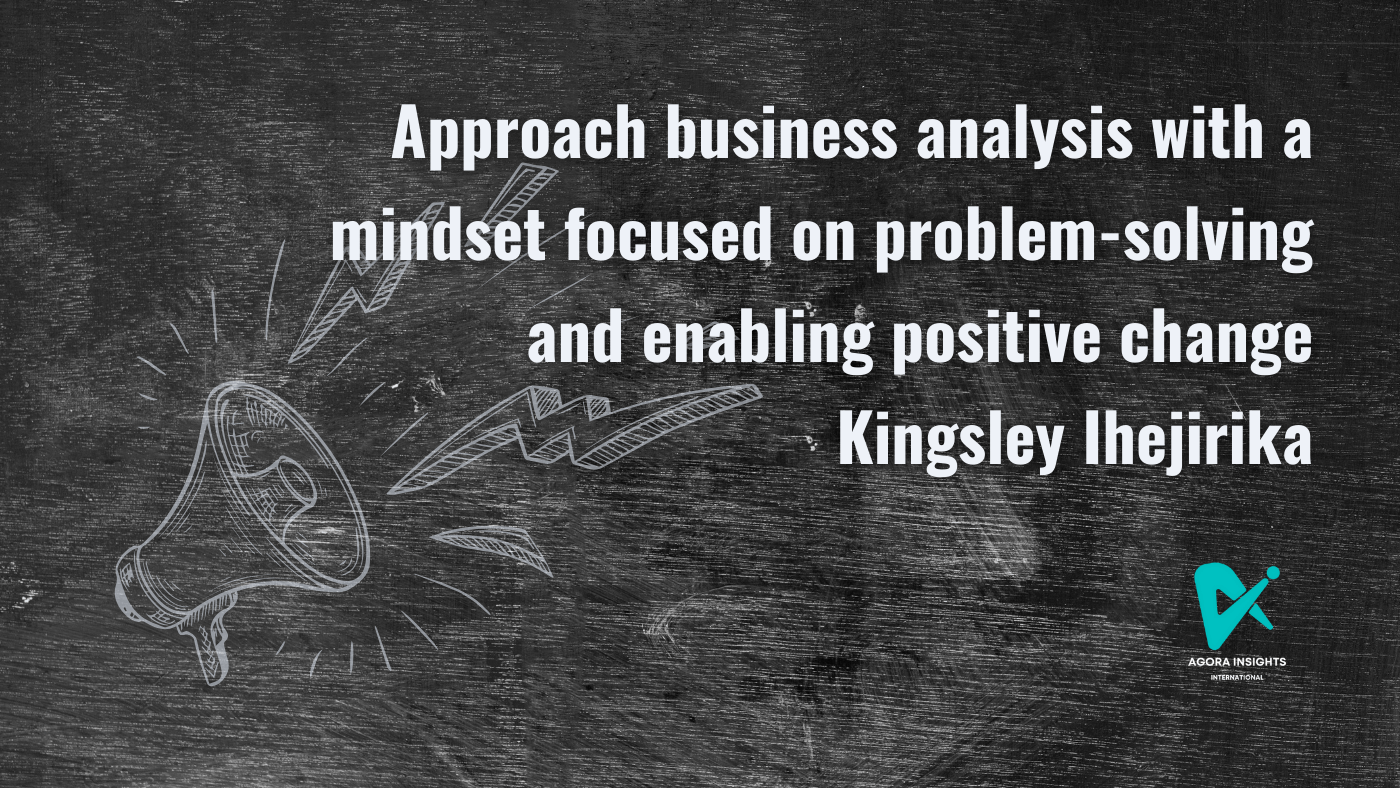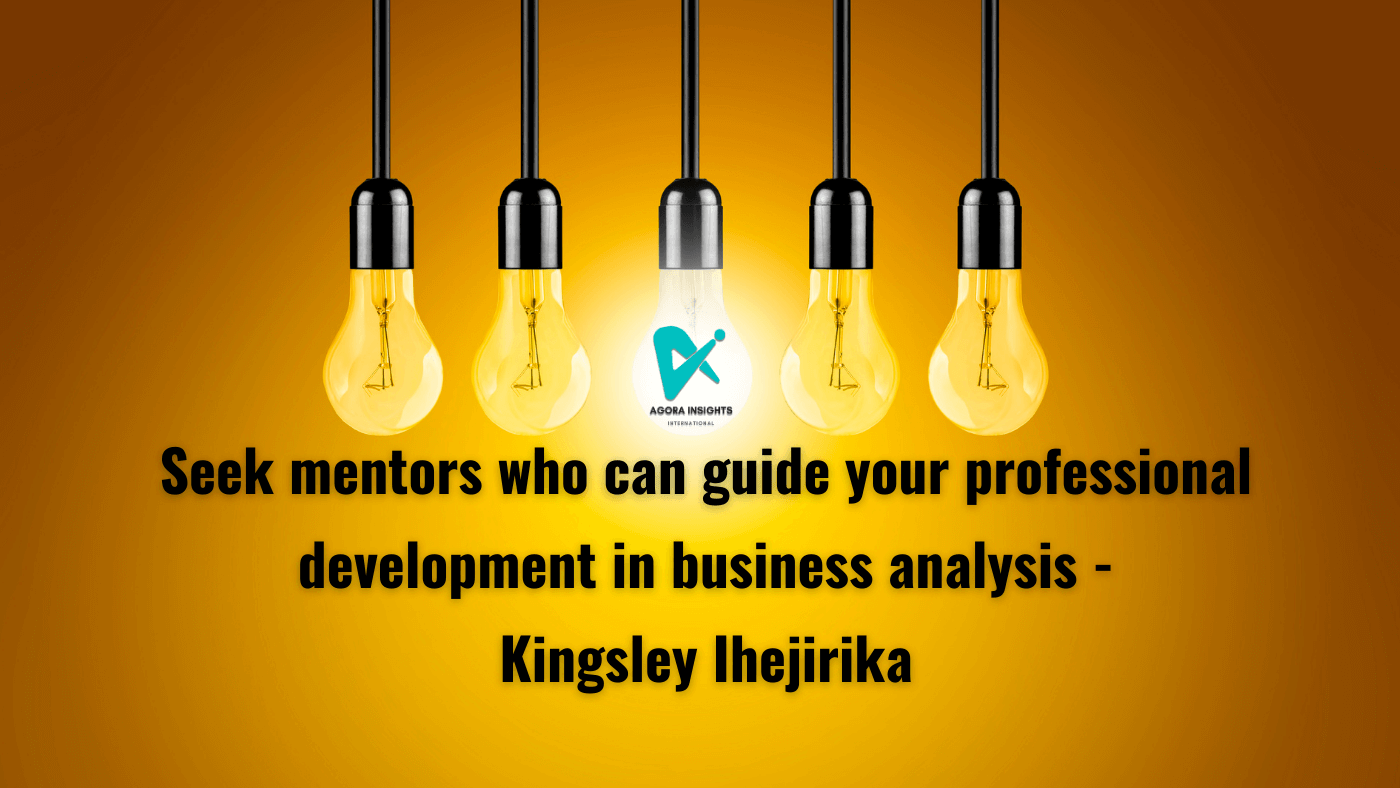
Hosted by Deirdre Caren on Agora Insight's Blueprints for Success - Business Analysis.
I'm happy to share insights from my recent conversation with Kingsley T. Ihejirika, PhD, an ICT Business Analyst at the Ministry of Justice in New Zealand. Kingsley's unique blend of academic theory and practical expertise sheds light on the path to business analysis, emphasising the importance of continuing to learn and grow rather than relying on past successes.
Youtube Video
Background
Kingsley Ihejirika's background is a tapestry of academia and practical experience. His journey began with a solid academic foundation, having pursued a degree in library and information science. This discipline instilled in him an innate ability to organize thoughts and information, a skill that is invaluable in the field of business analysis. His academic pursuits didn't stop there; driven by a desire to make a global impact and interact with international scholars, Kingsley moved from Nigeria to New Zealand to undertake a PhD in Information Systems at Victoria University of Wellington. His research focused on social media and engagement, particularly how libraries can leverage digital platforms to enhance user engagement and promote readership.
Kingsley's transition from academia to the professional world of business analysis was motivated by his passion for engaging with people and solving real-world problems. Kingsley's approach to business analysis is deeply rooted in his educational background, where he learned to question assumptions, seek context, and apply critical thinking to enable change and deliver value.

3 Key Topics
1. Research and social media:
Kingsley's academic research has had a direct influence on his approach to business analysis. He discussed how theories, such as the Elicitation Likelihood Model (ELM), which he encountered during his PhD, have practical applications in his current role. This connection between theory and practice is a testament to the value of academic research in informing and enhancing professional practice.
Ihejirika's research interests are diverse and include digital resilience, online engagement, and the information behavior of various groups and communities. He has a deep-seated desire to discover and share knowledge, which drives his research endeavors. His work on understanding digital resilience, especially among groups most at risk of digital exclusion, is indicative of his commitment to applying theoretical insights to address societal challenges.
One of his research contributions is the exploration of how migrant communities in New Zealand use social media. This research utilizes social capital theory and the Elaboration Likelihood Model to understand the motivations and behaviors in relation to social media use during different phases of the process. By applying these theoretical models, Kingsley seeks to inform practice and contribute to the development of strategies that can enhance the well-being and integration of communities.
2. Role of Business Analysts:
In our conversation, Kingsley emphasized the role of business analysts as change enablers within an organization. He shared his perspective on the importance of understanding stakeholder needs, recommending solutions that deliver value, and the ability to see beyond immediate challenges to drive long-term organizational change. His insights underscore the multifaceted nature of the business analyst role, which transcends mere requirement gathering and management.
3. Future of Business Analysis:
Kingsley offered his thoughts on the future trajectory of business analysis. He believes that while the profession will continue to evolve with new specializations and branches, the foundational principles will remain consistent. Kingsley's own career aspirations reflect this belief, as he aims to grow into a strategic role, leveraging his skills and knowledge to influence and shape the future of his organization and the broader field of business analysis.
10 Learning Points
- Apply Academic Skills: Skills like critical thinking and research developed during academic pursuits can be valuable in business analysis.
- Embrace Continuous Learning: The field of business analysis is evolving, and continuous learning is key to staying relevant.
- Understand the Problem First: It's crucial to understand the problem thoroughly before looking for solutions.
- Remember Context is Key: Always consider the context when analyzing business problems, as it can significantly impact outcomes.
- Think of Business Analysis as a Mindset: Approach business analysis with a mindset focused on problem-solving and enabling positive change.
- Use AI as an Enabler: AI should enhance human critical thinking, not replace it.
- Note that Mentorship Matters: Seek mentors who can guide your professional development in business analysis.
- Set Clear Goals: Define what you want to achieve in your business analysis career and work towards those goals.
- Understand the Value of Professional Networks: Platforms like LinkedIn are crucial for professional growth and networking.
- Don't Rest on Past Successes: Celebrate your achievements but always look forward to new adventures, new challenges and learning opportunities.

Conclusion
Reflecting on my conversation with Kingsley, it's clear that the journey from theory to practice is not just a path but a continuous loop of learning, applying, and teaching. His advice to always question, to understand the context, and to never become complacent with past achievements resonates deeply with our ethos of continuous improvement and growth. So stay curious, embrace learning, and seek out mentors who can guide you along this ever-evolving journey.
Let's continue to build our knowledge and skills together, and remember, whether you're transitioning from academia to industry or looking to climb the ladder within your current field, the principles of critical thinking, problem-solving, and value creation are universal keys to success.
Learn more about Kingsley
With over two years of experience as an ICT Business Analyst at the Ministry of Justice - New Zealand, I apply my data analysis, information governance, and change management skills to deliver valuable outcomes for the organisation and its stakeholders. I enjoy guiding and coaching others, working actively in change initiatives and projects, and providing the right information, requirements, and analysis for effective decision-making and problem-solving.
I am also a passionate educator and researcher, with a PhD in Information Systems from Victoria University of Wellington. My research interests include digital resilience, online engagement, and information behaviour of various groups and communities. I believe in discovering and sharing knowledge that can improve the lives and well-being of people, especially those who are most at risk of digital exclusion or marginalisation. I am a husband, a dad, a writer, a speaker, and a mentor who values collaboration, learning, and growth.